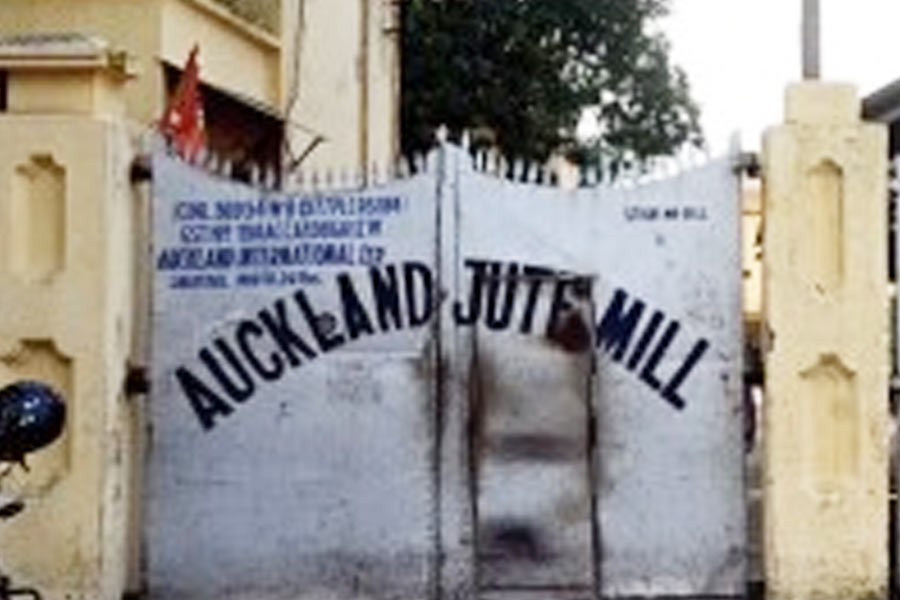A suspension of work notice was served at the Auckland Jute mill in North 24-Parganas Jagatdal on Saturday putting at stake the lives of around 4,000 workers.
On Saturday morning when the workers arrived for their daily shift the main gate was locked with the suspension notice pasted on it.
The suspension notice followed an assault on a senior official of the mill, Shankar Debnath. A grievously injured Debnath is under treatment at a city hospital.
The BJP’s Barrackpore strongman and former MP Arjun Singh blamed the Trinamool Congress for the assault and the closure of the mill.
“The Trinamool leaders demanded money from the mill official. He refused to pay and was beaten up,” said Singh.
The local Trinamool leaders denied Singh’s claims, saying Debnath was assaulted by outsiders.
Bengal’s jute mills once a thriving industry are no stranger to violence.
About 10 years ago, the CEO of Northbrook jute mills in Hooghly’s Bhadreswar was beaten to death on June 15 by agitating workers. The 60-year old Hari Kusum Maheshwari was beaten by bricks and iron rods till he collapsed on the mill’s ground.
In 2001, at the Baranagar Jute factory on a Saturday, the mill’s CEO JP Tiwari and personnel manager Gautam Ghosh were burnt to death.
A group of workers protesting against the suspension of two of their colleagues forcibly entered the CEO’s office, at which Tiwari opened fire at a worker, killing him.
The irate workers dragged Tiwari and Ghosh out into the compound and set them on fire.
Soon after the killing at the Bhadreswar jute mill, the Auckland jute mill had closed and remained so for 40 days.
The jute industry in Bengal, hit by the owners’ reluctance to modernise the machinery, drop in demands, and a belligerent workforce has been hit hard for decades with mill owners moving out to friendlier states like Andhra Pradesh.
On paper, Bengal still remains the highest producer of jute in the country. In 2023-24, compared to Andhra Pradesh’s 2151.82 kg/hectare yield, Bengal had a yield of 2883.20 per hectare and 7865.70 in bales.











